
As our beloved Shih Tzus age, they undergo various behavioral changes that can be both perplexing and concerning for their owners. These changes are a natural part of the aging process, and understanding them can help ensure that your Shih Tzu remains happy and healthy in their golden years. This comprehensive guide will explore the common behavioral changes in aging Shih Tzus and provide effective strategies to manage and adapt to these changes. Highlighting important information along the way, we will cover topics such as physical health, mental well-being, diet, exercise, and creating a comfortable living environment.
Recognizing Behavioral Changes in Aging Shih Tzus

Physical Health-Related Behavioral Changes
As Shih Tzus age, they often experience physical health-related behavioral changes. These changes can include increased lethargy, decreased mobility, and changes in eating habits. You may also notice your Shih Tzu becoming more sensitive to temperature changes and less tolerant of strenuous activities.
Pain and discomfort from arthritis or other age-related conditions can lead to increased irritability or aggression. Regular veterinary check-ups are essential to monitor and manage these health issues. Medications or supplements can help alleviate pain and improve your Shih Tzu’s quality of life.
Observing and recording any behavioral changes can provide valuable information for your veterinarian. Early detection and treatment of health issues can prevent more severe problems down the line.
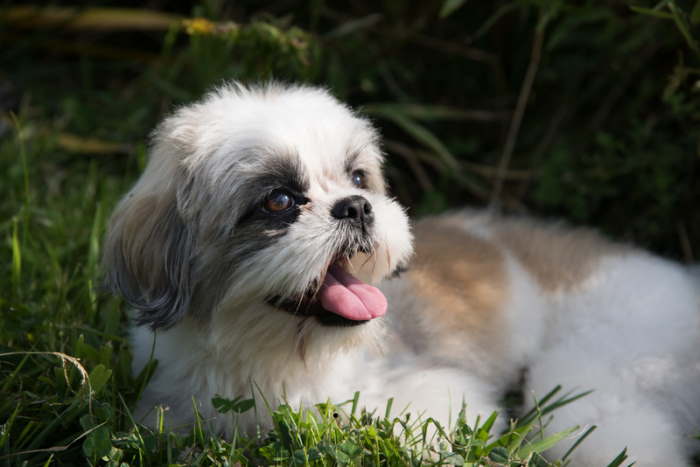
Cognitive Decline and Behavioral Changes
Cognitive decline is a common issue in aging Shih Tzus, often referred to as canine cognitive dysfunction (CCD). Symptoms of CCD can include disorientation, confusion, changes in sleep patterns, and decreased interaction with family members. Your Shih Tzu may forget previously learned commands or house-training rules.

They may also exhibit repetitive behaviors, such as pacing or excessive licking. Providing mental stimulation through interactive toys and puzzles can help slow cognitive decline. Maintaining a consistent daily routine can reduce confusion and anxiety. Consulting with your veterinarian about medications or supplements designed to support cognitive function can be beneficial. Monitoring your Shih Tzu’s behavior and making note of any changes is crucial for managing CCD.
Emotional and Social Behavioral Changes
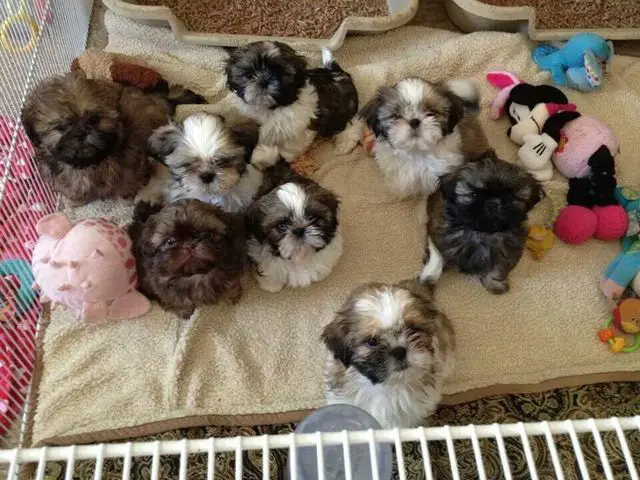
Aging Shih Tzus may experience changes in their emotional and social behavior. They might become more clingy and seek extra attention from their owners. Alternatively, some Shih Tzus may become more withdrawn and less interested in social interactions. Changes in hearing and vision can contribute to increased anxiety and fearfulness.
Providing a safe and comfortable environment can help reduce anxiety. Using calming aids such as pheromone diffusers or anxiety wraps can be helpful. Maintaining a stable and predictable routine can provide a sense of security for your Shih Tzu. Regular social interactions and gentle handling can help maintain their emotional well-being.
Managing Physical Health and Mobility
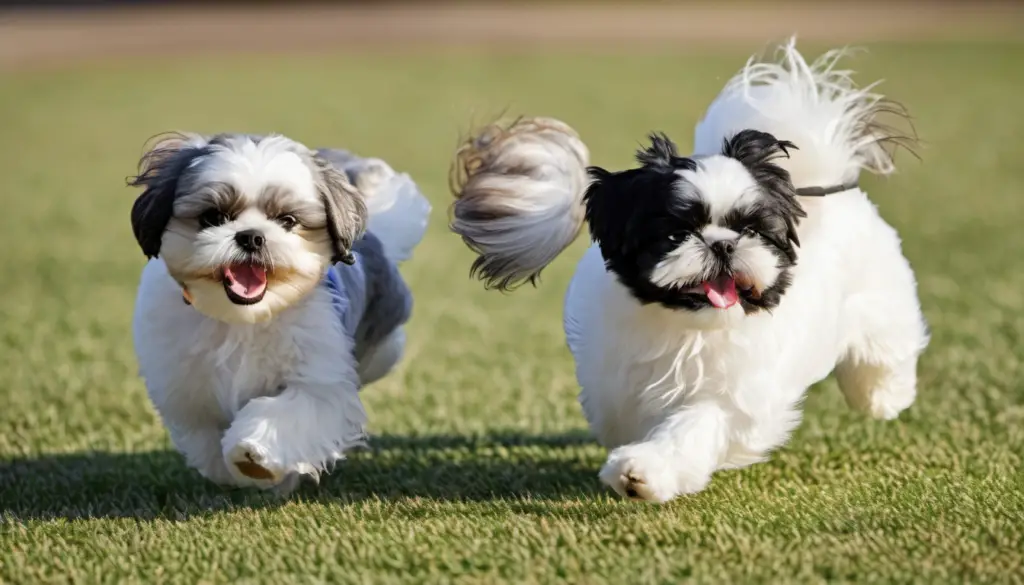
Regular Veterinary Care
Regular veterinary care is paramount in managing the physical health and mobility of aging Shih Tzus. Scheduled check-ups allow for early detection and treatment of health issues. Your veterinarian can recommend appropriate medications or supplements for pain management and joint support.
Dental care is crucial, as dental issues can lead to pain and changes in eating behavior. Vaccinations and parasite control should be maintained to prevent infections and diseases. Monitoring your Shih Tzu’s weight and adjusting their diet as needed can prevent obesity-related issues. Regular blood tests can help detect underlying health conditions. Open communication with your veterinarian about any behavioral changes is essential for comprehensive care.

Diet and Nutrition
Proper diet and nutrition play a vital role in maintaining the health of aging Shih Tzus. Older dogs may require a diet lower in calories but higher in essential nutrients. Foods rich in antioxidants, omega-3 fatty acids, and glucosamine can support joint health and cognitive function.
Specialized senior dog food formulas are designed to meet the nutritional needs of aging dogs. Feeding smaller, more frequent meals can aid digestion and prevent weight gain. Ensuring your Shih Tzu stays hydrated is crucial, as older dogs may not drink enough water. Avoiding table scraps and unhealthy treats is important for maintaining a balanced diet.
Consulting with your veterinarian about dietary adjustments is recommended for optimal health.
Exercise and Mobility Support
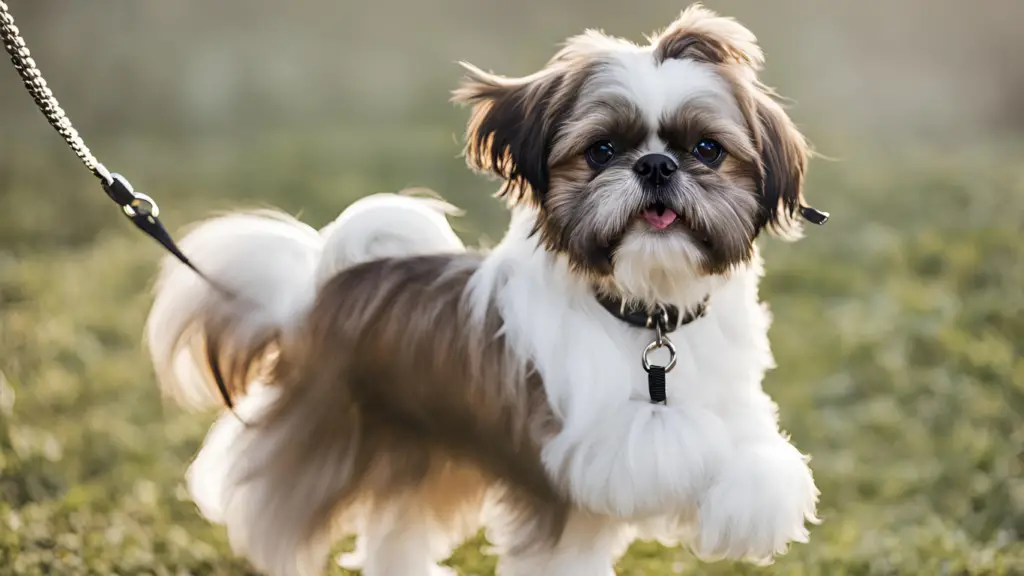
Regular exercise is essential for maintaining mobility and overall health in aging Shih Tzus. Short, gentle walks can help keep joints flexible and muscles strong. Avoiding strenuous activities that could exacerbate joint pain is important. Providing soft bedding and orthopedic beds can support joint health and provide comfort. Using ramps or steps can help your Shih Tzu navigate furniture and prevent injury. Physical therapy or massage can improve mobility and reduce pain.
Monitoring your Shih Tzu’s activity level and adjusting their exercise routine as needed is crucial. Engaging in low-impact activities like swimming can be beneficial for joint health.
Supporting Cognitive Function and Mental Health

Mental Stimulation and Enrichment
Mental stimulation is key to maintaining cognitive function in aging Shih Tzus. Interactive toys, puzzle feeders, and training games can keep their minds active.
Teaching new tricks or commands can provide mental exercise and prevent cognitive decline. Rotating toys regularly can keep your Shih Tzu engaged and interested. Providing sensory experiences, such as different textures and scents, can stimulate their senses.
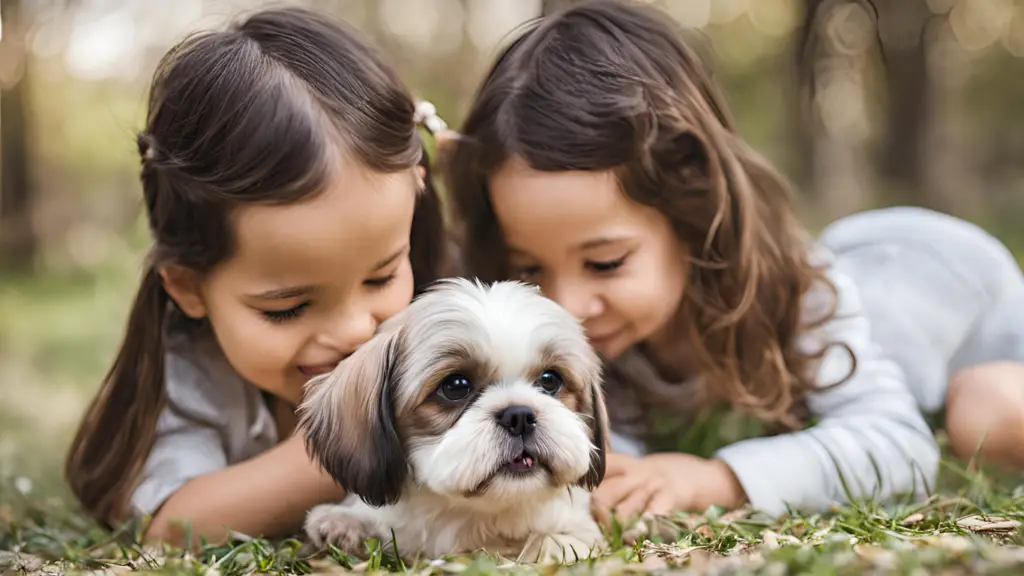
Incorporating playtime into their daily routine can enhance mental well-being. Social interactions with other dogs and people can provide mental stimulation and prevent isolation. Regularly changing your walking routes can provide new sights and smells for mental enrichment.
Consistent Routine and Environment
Maintaining a consistent routine and environment is important for reducing anxiety in aging Shih Tzus. Predictable schedules for feeding, walking, and bedtime can provide a sense of security. Avoiding major changes in the home environment can reduce stress. Creating a quiet and comfortable space for your Shih Tzu to retreat to can help them feel safe.

Using familiar scents and objects can provide comfort and familiarity. Minimizing exposure to loud noises and stressful situations is important. Regularly spending quality time with your Shih Tzu can strengthen your bond and reduce anxiety. Consistency in training and handling helps reinforce positive behaviors.
Behavioral Modification Techniques
Behavioral modification techniques can help manage anxiety and other behavioral changes in aging Shih Tzus. Positive reinforcement training can encourage desired behaviors and reduce negative ones. Using treats and praise to reward calm and relaxed behavior can be effective.

Desensitization techniques can help reduce fear and anxiety related to specific triggers. Counter-conditioning can help change your Shih Tzu’s emotional response to stressful situations. Consulting with a professional dog trainer or behaviorist can provide personalized guidance.
Medication or supplements prescribed by your veterinarian can support behavioral modification efforts. Patience and consistency are key to successful behavioral modification.
Creating a Comfortable Living Environment

Safe and Accessible Living Space
Creating a safe and accessible living space is crucial for aging Shih Tzus. Removing obstacles and hazards can prevent accidents and injuries. Providing non-slip mats or rugs can help your Shih Tzu navigate slippery floors. Ensuring that your home is well-lit can help dogs with vision impairments.
Making sure that food, water, and bedding are easily accessible can reduce strain. Using baby gates to restrict access to unsafe areas can provide security. Providing a comfortable and quiet resting area can help your Shih Tzu relax.Regularly checking your home for potential hazards is important for safety.

Comfort and Temperature Regulation
Regulating temperature and providing comfort is essential for the well-being of aging Shih Tzus. Older dogs are more sensitive to temperature extremes, so maintaining a comfortable indoor temperature is important. Providing cozy blankets and beds can keep your Shih Tzu warm and comfortable.
Using fans or air conditioning during hot weather can prevent overheating. Ensuring access to shade and fresh water when outside is crucial. Avoiding long walks during extreme weather conditions can prevent stress and discomfort.

Monitoring your Shih Tzu’s body temperature and behavior can help detect signs of discomfort. Adjusting your dog’s living environment based on seasonal changes is necessary for their well-being.
Social Interaction and Bonding
Maintaining social interaction and bonding is important for the emotional health of aging Shih Tzus. Spending quality time with your Shih Tzu can strengthen your bond and reduce feelings of isolation. Engaging in activities that your Shih Tzu enjoys, such as gentle play or cuddling, can enhance their happiness.
Regular social interactions with other dogs and people can prevent loneliness. Using positive reinforcement to reward social behaviors can encourage interaction.

Monitoring your Shih Tzu’s comfort level during social interactions is important. Providing opportunities for supervised playdates or group activities can enhance social well-being. Adjusting the level of social interaction based on your Shih Tzu’s preferences and needs is crucial.
Adjusting to Age-Related Sensory Changes
Vision and Hearing Impairments
Vision and hearing impairments are common in aging Shih Tzus and can affect their behavior. Recognizing the signs of sensory impairments, such as bumping into objects or not responding to sounds, is important. Using hand signals or visual cues in addition to verbal commands can aid communication.

Keeping pathways clear and minimizing changes in furniture arrangement can help your Shih Tzu navigate. Using scents and textures to mark important areas, such as the location of food and water, can be helpful.
Speaking to your Shih Tzu in a calm and clear voice can enhance communication. Providing a safe and familiar environment can reduce anxiety related to sensory changes. Consulting with your veterinarian about managing sensory impairments is recommended.
Managing Anxiety Related to Sensory Loss
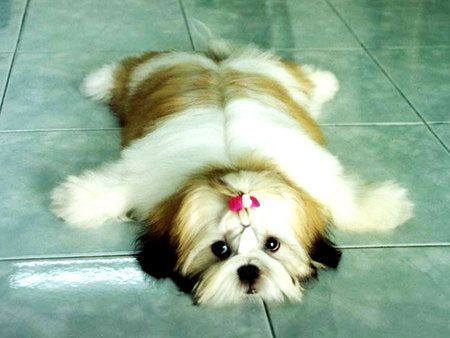
Managing anxiety related to sensory loss is crucial for the well-being of aging Shih Tzus. Creating a predictable and consistent routine can provide a sense of security. Using calming aids, such as pheromone diffusers or anxiety wraps, can help reduce stress. Providing a quiet and comfortable resting area can help your Shih Tzu feel safe.
Engaging in gentle and calming activities, such as massage or brushing, can reduce anxiety. Monitoring your Shih Tzu’s behavior for signs of anxiety and addressing triggers is important. Using positive reinforcement to reward calm behavior can encourage relaxation. Consulting with your veterinarian about anxiety management strategies is beneficial.

Conclusion
Understanding and managing the behavioral changes in aging Shih Tzus requires patience, compassion, and a proactive approach. By recognizing the signs of physical health issues, cognitive decline, and emotional changes, owners can take steps to ensure their Shih Tzu’s well-being. Regular veterinary care, a balanced diet, appropriate exercise, and mental stimulation are essential components of care for aging Shih Tzus. Creating a safe and comfortable living environment, maintaining social interaction, and adjusting to sensory changes can further enhance their quality of life. With proper care and attention, your aging Shih Tzu can continue to enjoy a happy and fulfilling life in their senior years.


